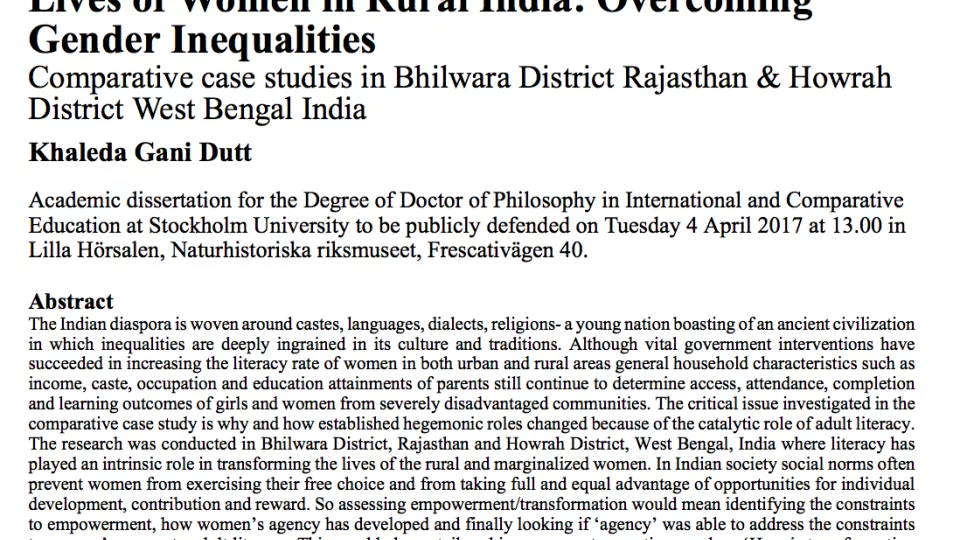Abstract of the thesis:
The Indian diaspora is woven around castes, languages, dialects, religions- a young nation boasting of an ancient civilization in which inequalities are deeply ingrained in its culture and traditions. Although vital government interventions have succeeded in increasing the literacy rate of women in both urban and rural areas general household characteristics such as income, caste, occupation and education attainments of parents still continue to determine access, attendance, completion and learning outcomes of girls and women from severely disadvantaged communities. The critical issue investigated in the comparative case study is why and how established hegemonic roles changed because of the catalytic role of adult literacy. The research was conducted in Bhilwara District, Rajasthan and Howrah District, West Bengal, India where literacy has played an intrinsic role in transforming the lives of the rural and marginalized women. In Indian society social norms often prevent women from exercising their free choice and from taking full and equal advantage of opportunities for individual development, contribution and reward. So assessing empowerment/transformation would mean identifying the constraints to empowerment, how women’s agency has developed and finally looking if ‘agency’ was able to address the constraints to women’s access to adult literacy. This would also entail seeking answers to questions such as ‘How is transformation represented in their narratives? What was the impact of literacy upon their lives?
Khaleda recently published an article in the Journal of Intergenerational Relationships Taylor and Francis. Read the article.
